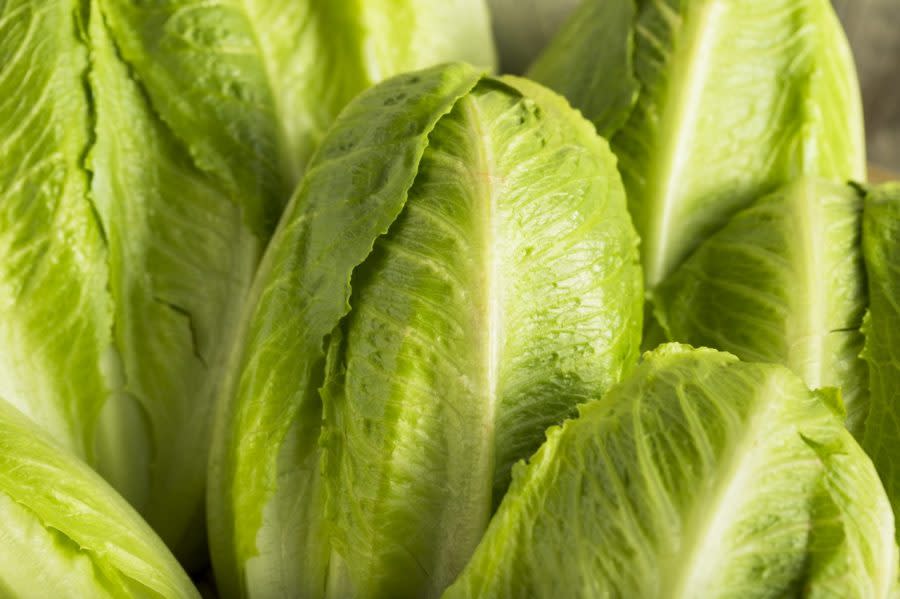Tennessee ‘vaccine lettuce’ bill heads to Gov. Bill Lee’s desk

- Oops!Something went wrong.Please try again later.
NASHVILLE, Tenn. (WKRN) — A bill that would prohibit vaccines to be put on food has passed the Senate and will be sent to Governor Bill Lee for his signature.
On Thursday, the Tennessee Senate cast the final vote on HB1894, which would add a new definition to the word “drug” in Tennessee Code. HB1894 states drugs are also “food that contains a vaccine or vaccine material.”
The bill was brought in the legislature in response to concerns about scientists putting vaccines in the produce purchased at grocery stores, according to Republicans in the House.
Read the latest from the TN State Capitol Newsroom
Rep. Scott Cepicky (R-Culleoka) said people at the University of California Riverside (UCR) could “put a vaccine into a head of lettuce.” If they did that, Cepicky said, that would be fine, but the state of Tennessee would treat that vaccine-laden head of lettuce as a drug and not as a food item.
“You would have to get a prescription for that to make sure that we know how much of the lettuce you have to eat based off of your body type so we don’t under-vaccinate you, which leads to the possibility of the efficacy of the drug being compromised, or we overdose you based off how much lettuce is [eaten],” he said during a House committee meeting in February. “All this does is [say] we’re going to classify these types of food sources as pharmaceuticals, so if you want to consume them you would go to your doctor and get a prescription.”
Cepicky claimed UCR had “perfected the ability to put mRNA in the lettuce,” however, the article he cited from UCR was published in 2021 and states scientists at the university were only studying whether or not it was possible to “turn edible plants like lettuce into mRNA vaccine factories,” not that they had already done so.
📧 Have breaking come to you: Subscribe to News 2 email alerts →
UCR received a $500,000 grant from the National Science Foundation to study if it was possible to successfully use plant cells to replicate DNA containing mRNA vaccines, if they could produce enough mRNA to rival a traditional injection dose and determine the right dosage. The project is being conducted with scientists from UC San Diego and Carnegie Mellon University.
According to a spokesperson with UCR, the project is not yet concluded.
“Research into the process of having plant chloroplasts express vaccine chemistry is ongoing. There are no definitive results to report,” Jules Bernstein, Senior Public Information Officer for UC Riverside said in an email to News 2.
Cepicky also cited Kentucky BioProcessing, LLC, as “infecting growing tobacco plants with a genetically modified coronavirus to see if the produced antibodies for a possible vaccine.”
“Reynolds Tobacco can already do this right now. It’s a fact,” Cepicky said.
On the Senate floor Thursday, Sen. Heidi Campbell asked sponsor Sen. Joey Hensley (R-Hohenwald) if he was aware of anyone attempting to put vaccines in any food.
Hensley said he was not aware, but said the U.S. Congress had recently taken up a bill that has allowed for the dispersal of vaccines through the food supply, so this bill was necessary to protect Tennesseans.
⏩ Read today’s top stories on wkrn.com
Campbell countered, saying such a piece of produce would be prohibitively expensive and there was no need for a bill on the topic.
The bill eventually passed on a mostly party line vote, 23-6. Republican Sen. Art Swann (R-Maryville) joined the Democrats in opposition to the bill.
The measure now heads to Gov. Lee’s desk for his signature.
For the latest news, weather, sports, and streaming video, head to WKRN News 2.

